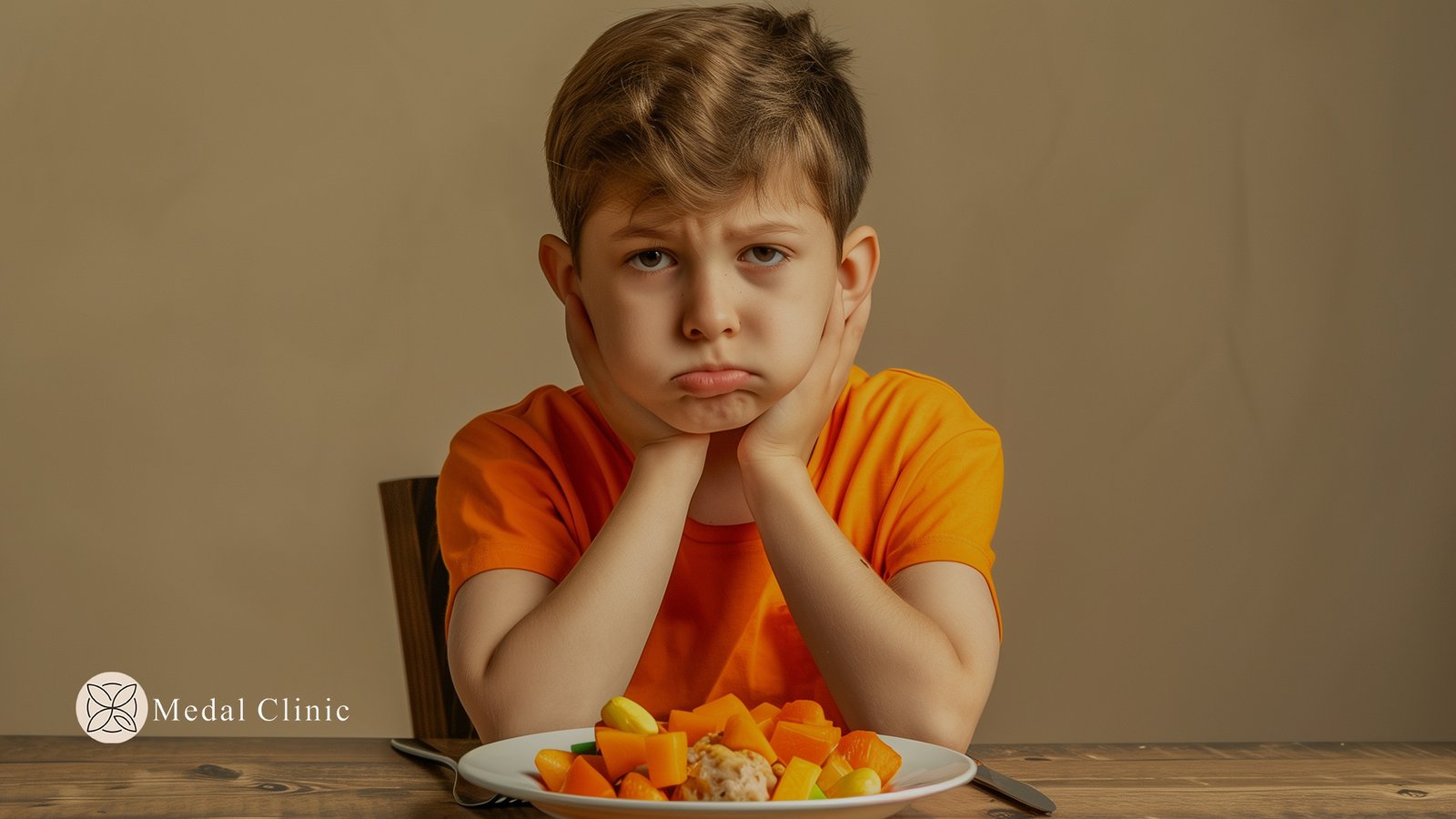Causes and Treatments for Loss of Appetite in Children
Loss of appetite in children is a common concern for many parents. It can be distressing to see a child who refuses to eat or shows little interest in food. Understanding the underlying causes and knowing the appropriate treatments can help alleviate worries and ensure children receive the nutrition they need.
Causes of Loss of Appetite
Growth Spurts: Children’s appetites naturally fluctuate as they go through growth spurts. During periods of rapid growth, they may eat more, while during slower growth phases, their appetite might decrease.
Illness: Temporary loss of appetite often accompanies illnesses such as colds, flu, or stomach infections. In such cases, the child’s appetite usually returns once they recover.
Stress and Anxiety: Emotional factors such as stress, anxiety, or changes in routine (e.g., starting school, moving house) can affect a child’s desire to eat. Children might not be able to express these feelings verbally but show them through changes in eating habits.
Picky Eating: Some children are naturally picky eaters and may refuse to eat certain foods or only eat specific items. This can lead to an overall decrease in their appetite.
Medication Side Effects: Certain medications can suppress appetite as a side effect. If a child is on medication, it’s important to discuss this with their doctor.
Nutritional Deficiencies: Deficiencies in essential nutrients, such as iron or vitamins, can cause a loss of appetite. These deficiencies might result from a restricted diet or poor absorption of nutrients.
Constipation: A child who is constipated may feel too uncomfortable to eat. This can lead to a cycle of poor eating habits and further digestive issues.
Treatments and Solutions
Routine and Structure: Establishing regular meal and snack times can help regulate a child’s appetite. Consistency provides a sense of security and can encourage better eating habits.
Healthy Snacks: Offer nutritious snacks between meals to ensure the child gets the necessary nutrients. Healthy options include fruits, vegetables, yoghurt, and whole-grain crackers.
Hydration: Ensure the child is adequately hydrated. Sometimes, children may confuse thirst with hunger. Encourage water consumption throughout the day.
Make Meals Enjoyable: Create a positive mealtime environment. Involve children in meal preparation, make meals colourful and appealing, and avoid pressuring them to eat.
Small, Frequent Meals: Instead of three large meals, offer smaller, more frequent meals. This approach can be less overwhelming and more appealing to children with small appetites.
Address Emotional Factors: If stress or anxiety is suspected, address these issues. Talk to the child about their feelings and provide support. In some cases, professional counselling might be beneficial.
Monitor Growth and Development: Regular check-ups with a paediatrician can help monitor the child’s growth and development. The doctor can provide advice tailored to the child’s specific needs and identify any underlying health issues.
Avoid Force-Feeding: Forcing a child to eat can create negative associations with food and worsen the situation. Encourage, but do not force, the child to try new foods.
Supplementation: If a nutritional deficiency is diagnosed, the doctor may recommend supplements to restore the child’s appetite and overall health. Always consult a healthcare professional before starting any supplementation.
Patience and Persistence: Changes in eating habits and appetite often require time and patience. Be persistent in offering healthy food choices and maintaining a supportive environment.
In conclusion, loss of appetite in children can stem from various causes, ranging from natural growth patterns to emotional stress and medical conditions. By understanding these factors and applying practical solutions, parents can help their children develop healthy eating habits and ensure they receive the nutrition they need for proper growth and development. If concerns persist, seeking advice from a healthcare professional is crucial to rule out any underlying health issues and receive appropriate guidance.
FAQ's
What should I do if my child refuses to eat during meals?
If your child refuses to eat during meals, try not to worry or force them to eat. Create a calm and positive mealtime environment, and offer a variety of healthy foods. Involve your child in meal planning and preparation to make them more interested in eating. If they still refuse to eat, offer nutritious snacks between meals to ensure they are getting enough nutrients. Monitor their overall growth and development, and consult a paediatrician if you have ongoing concerns.
How can I tell if my child’s loss of appetite is due to an illness?
If your child’s loss of appetite is accompanied by other symptoms such as fever, fatigue, vomiting, diarrhoea, or a general feeling of being unwell, it is likely due to an illness. In such cases, ensure your child stays hydrated and offer light, easy-to-digest foods. Allow them to rest and recover. If the loss of appetite persists for more than a few days, or if you notice severe or worsening symptoms, consult a healthcare professional for further evaluation and advice.
Are there specific foods that can help improve my child’s appetite?
Yes, there are foods that can help stimulate your child’s appetite. Try offering small portions of high-calorie, nutrient-dense foods like avocado, nuts, and seeds. Incorporate healthy fats such as olive oil into their meals. Fresh fruits, especially those high in vitamin C like oranges and berries, can also help. Additionally, involve your child in choosing and preparing meals to make them more appealing. Ensuring that meals are visually appealing and varied in texture and colour can also make eating more enticing for children.




